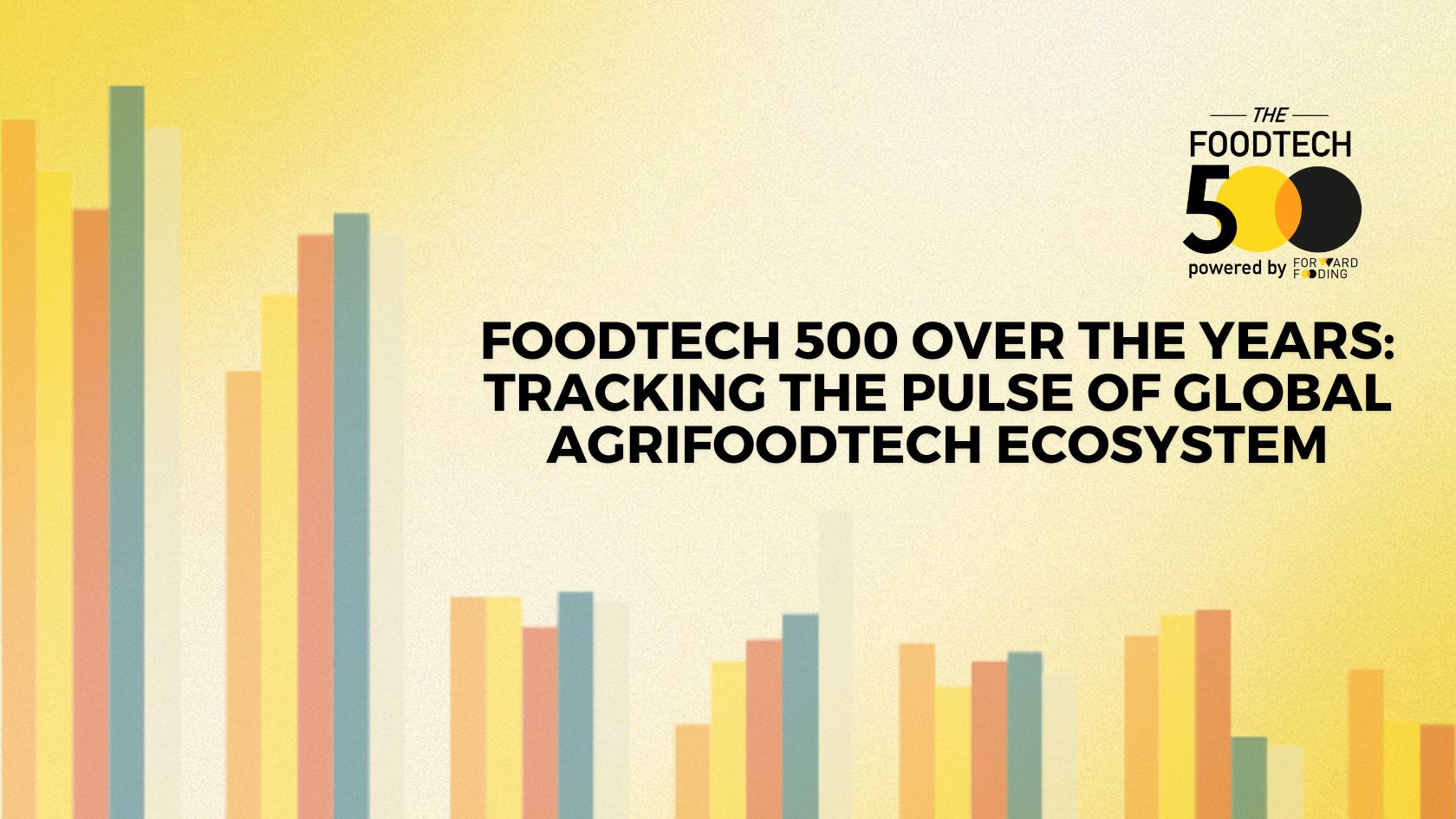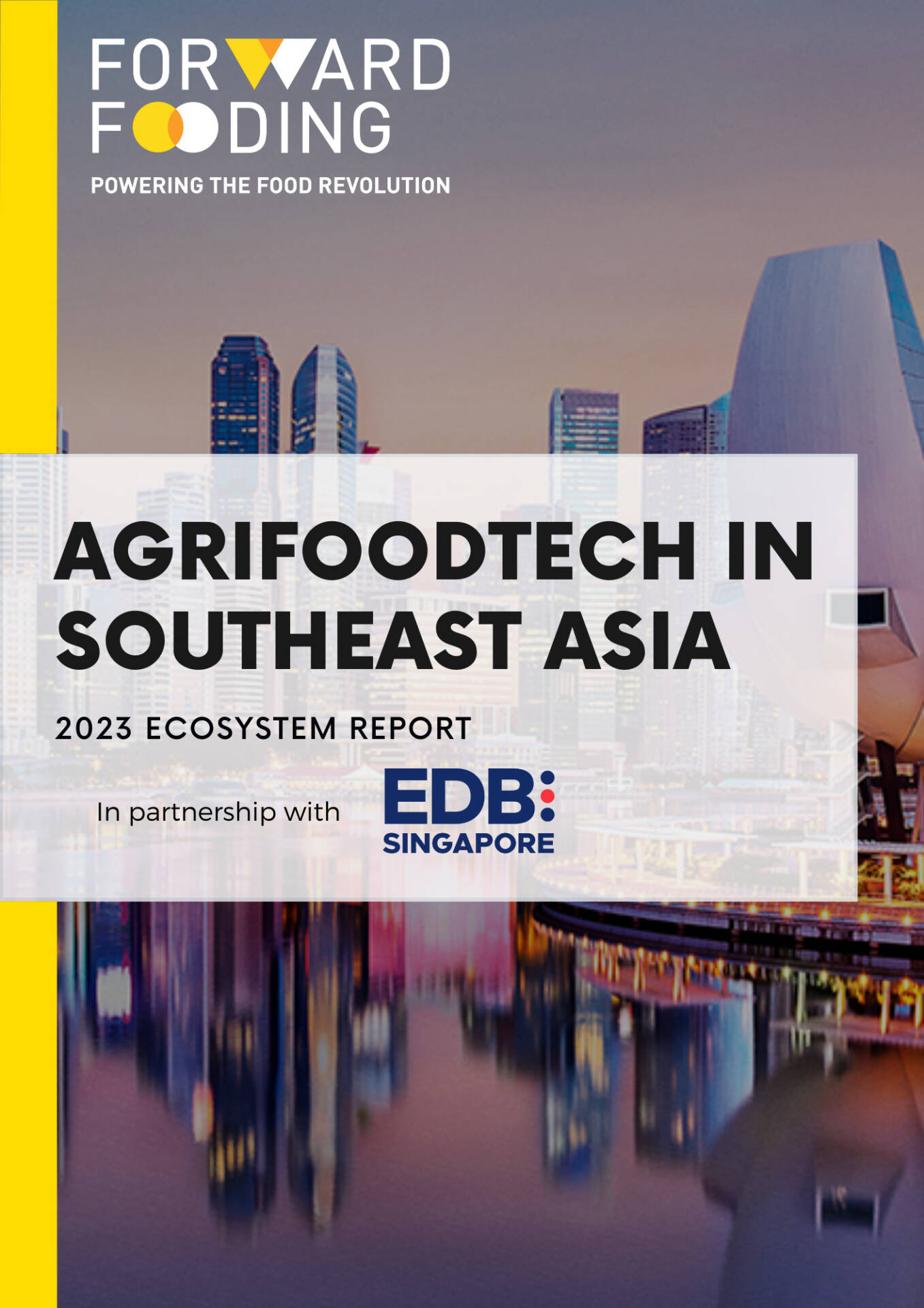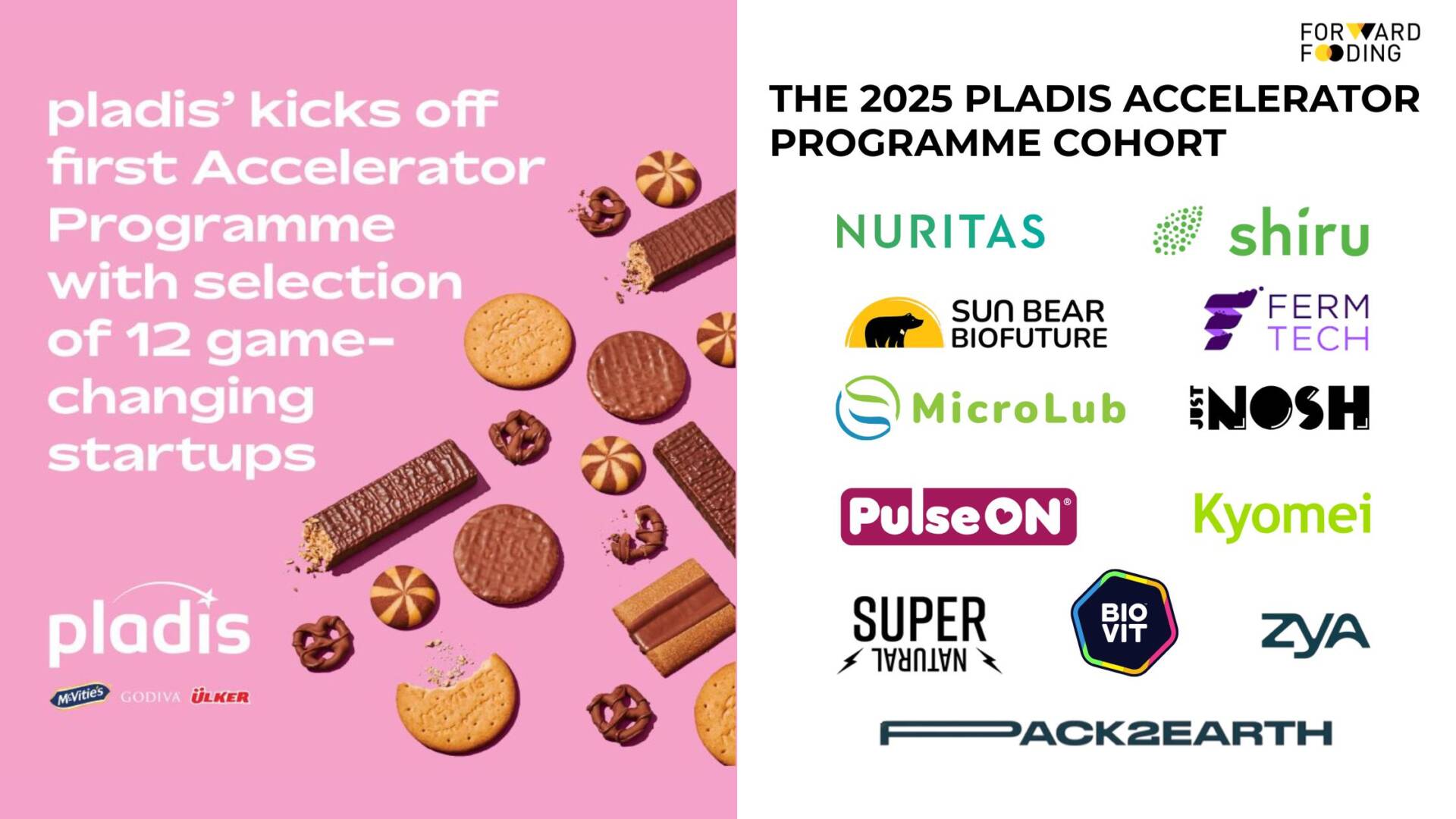FORWARD FOODING
THE BLOG
FoodTech 500 Over the Years: Tracking the Pulse of Global AgriFoodTech Ecosystem

For six years, Forward Fooding’s FoodTech 500 has served as a vital pulse check of the industry, spotlighting the most promising and disruptive forces reshaping our food system. It’s not just a list but a snapshot of an industry undergoing a transformation.
Sneak Peek into the 2024 Edition
On 18th March 2025, we will officially unveil the 2024 FoodTech 500 Ranking.
Now in its sixth edition, the 2024 edition showcased the growing global influence of the AgriFoodTech sector by attracting 1,420 applications from startups and scale-ups worldwide. The initiative received submissions from 80+ countries.
The companies that made it to the latest edition of the FoodTech 500 have an impressive $8.67B in total funds raised, with 74% of finalists actively generating revenue and an astounding 99% having secured investments. The finalist pool represents remarkable diversity with 34% female founders and spans 52 countries, while innovation remains strong with 620 patents filed across 30 different domains in the AgriFoodTech space. Adding to their impact credentials, these pioneering companies are tackling crucial global challenges, with 60% addressing Zero Hunger (SDG 2) and 53% focusing on Responsible Consumption and Production (SDG 12), highlighting the sector’s commitment to sustainable food systems transformation.
The following infographic breaks down key metrics that shaped our 2024 rankings. It offers a snapshot of geographical distribution, technology categories & funding patterns:

The FoodTech 500 Over The Years
The FoodTech 500’s journey from 2019-2024 has witnessed the evolution of the global food innovation landscape, with interest spanning 180+ countries and reflected in over 10,500+ applications and 360,000 report downloads. The FoodTech 500 democratises access to industry insights while elevating the visibility of innovative AgriFoodTech companies globally that shape the industry.
 The FoodTech 500 has become more than just a ranking. It’s a benchmark, reflecting and even anticipating the evolving patterns of the global food ecosystem. Just as a healthy ecosystem thrives on diversity and interconnectedness, the FoodTech 500 mirrors this complexity, showcasing the breadth and depth of innovation across the food value chain.
The FoodTech 500 has become more than just a ranking. It’s a benchmark, reflecting and even anticipating the evolving patterns of the global food ecosystem. Just as a healthy ecosystem thrives on diversity and interconnectedness, the FoodTech 500 mirrors this complexity, showcasing the breadth and depth of innovation across the food value chain.

Elo at Future Food-Tech San Francisco 2024 | Image courtesy: Alessio D’Antino
5 Years of FoodTech 500 – What can we learn from it
After 6 editions, we took a step back to look into the data behind the 500 companies that have made the ranking each year and extracted some key learnings:
1. The Rise of the Biotech Revolution

Source: FoodTech Data Navigator
Over the years, the distribution of FoodTech 500 companies across the different verticals of the industry has evolved quite significantly. The FoodTech 500 rankings show a clear industry shift between 2020-2024, with upstream technologies gaining dominance: Food Processing companies surged from 23 to 73, and Next-Gen Food and Drinks grew from 119 to 138, while downstream sectors declined significantly to about a third from their peaks – Food Delivery fell to 18 companies (from its 2021 peak of 51), Consumer Apps dropped from 30 to 10, and Kitchen and Restaurant Tech decreased from 33 to 11.
In particular, zooming into the ‘Domains’ of our taxonomy (sub-verticals), biotechnology-related domains have been consistently growing:
- Ag Biotech representation has surged from its lowest with 17 companies in 2022 to 42 FoodTech 500 finalists in 2024
- Biotechnology and synthetic biology ventures rose from 15 FoodTech 500 finalists in 2020 to 54 companies in the latest rankings
- Cellular Agriculture companies in the FoodTech 500 have doubled in number since 2020
This shift reflects a growing understanding that true transformation requires addressing the roots of our food system.

Analyzing trends across six years of FoodTech 500 data reveals notable shifts in industry focus. Several domains have shown consistent upward momentum: Biotech/ Synthetisation, Ag Biotech, Protein Fermentation, Cellular Agriculture, and Upcycled Ingredients, Food Surplus and Waste Efficiency.
In contrast, Vertical and Indoor Farming has experienced a marked decline in representation among finalists, reflecting broader market challenges in this sector.
2. Beyond the Hype: The Evolving Funding Landscape
The narrative around vertical farming and other heavily funded players is evolving. Recent developments demonstrate that significant funding doesn’t always correlate with long-term success.

After reaching a striking peak in 2021-2022 with combined investments almost reaching $3.6B (€3.5B) across finalists, the sector experienced a sharp correction with fewer ‘mega-funded’ companies through 2023-2024, likely reflecting broader market conditions, including a more cautious investment climate.
The dramatic rise and subsequent adjustment suggest the FoodTech sector has moved from a period of heightened investment activity and aggressive valuations to a more measured phase where investors are prioritizing sustainable business models and clearer paths to profitability.

Source: FoodTech Data Navigator
Looking at the funding evolution from 2019 to 2024, several notable patterns emerge:
- Seed Stage Dominance & Early-Stage Funding Concerns: Seed-stage companies consistently make up the largest group of FoodTech 500 finalists. However, there’s a notable drop in Pre-Seed companies represented in 2024, potentially indicating tougher funding conditions for the earliest-stage startups.
- Series A as a Key Inflection Point: Series A funding appears crucial for FoodTech 500 companies. While a good number achieve this stage, the data suggests challenges in progressing to Series B and beyond.
- Growth to Later Stages & Potential Exits: The representation of Series B and C+ companies in the FoodTech 500 is smaller and fluctuates, possibly due to funding hurdles or companies pursuing alternative funding strategies as they mature.

Based on these numbers, we see some key drivers affecting FoodTech 500 funding evolution:
- The sharp decline in Pre-Seed FoodTech 500 companies (85 in 2023 to 41 in 2024) may indicate investors becoming more selective towards AgriFoodTech companies and reflected in the rankings, favoring those with proven unit economics. However, the healthy Seed stage numbers within the FoodTech 500 (209 companies in 2024) indicate that strong business models can still attract funding despite macro headwinds.
- The FoodTech 500 data suggests its cohort is entering a more mature phase, evidenced by: A robust pipeline of Series A FoodTech 500 companies (171 in 2024) and relatively stable numbers in Series B and C+ stages among FoodTech 500 companies.
3. Powering Change: Founder Diversity on the Rise
We see a continued increase in founder diversity, particularly the growing power of women in FoodTech. Since the 2022 edition, more than half of the featured companies have diverse founders, a trend that has been consistently growing:
- Gender diversity shows promising momentum, with female-founded companies increasing 36% since 2020 to reach 171 companies in 2024, indicating growing opportunities for women entrepreneurs in FoodTech.
- However, other diversity metrics reveal slower progress: ethnic minority representation remains static around 78-85 companies, while LGBTQ+ (16 companies) and disability representation (5 companies) show minimal growth.
- The imbalance presents both a challenge and an opportunity. More diverse leadership could unlock new market perspectives and drive innovation in addressing varied consumer needs across different communities.

This growing diversity isn’t just a statistic; it represents a crucial shift in perspective and innovation, enriching the FoodTech landscape with diverse experiences and solutions.
4. Sustainability at the Forefront
When submitting their application, each company is required to choose the 3 most relevant SDGs they are tackling and answer extensive questions for each of these.
Here is what we can learn:
- Climate action has emerged as a major priority in the FoodTech sector, with companies addressing SDG 13 experiencing explosive growth from 74 companies in 2022 to 243 in 2024 – representing a remarkable 228% increase and signaling a decisive shift toward climate-conscious innovation in the food industry.
- There is a significant growth in FoodTech 500 companies focusing on SDG 15 (Life on Land), with the number of companies tripling from 42 in 2022 to 126 in 2024, demonstrating an increasing commitment to protecting terrestrial ecosystems, sustainable forest management, and biodiversity conservation. Technologies addressing SDG 15 include methods for restoring degraded soil, implementing solutions that work with natural ecosystems, and developing sustainable alternatives to products that typically drive deforestation and harm biodiversity.
- Responsible Consumption (SDG 12) demonstrates steady growth, increasing from 171 to 265 companies (+55%), aligning with the broader sustainability focus seen in SDGs 13 and 15.
- Zero Hunger (SDG 2) shows a notable decline from 469 to 300 companies (-36%), suggesting a potential strategic pivot in the sector. While still representing a significant portion of FoodTech companies, this decline might indicate a shift from traditional food security approaches toward climate-smart and environmentally conscious solutions.
- Good Health (SDG 3) similarly decreased from 215 to 168 companies (-22%), indicating that while health remains important, companies may be increasingly integrating health goals within broader environmental sustainability initiatives.

Companies are increasingly prioritizing climate action and biodiversity preservation, recognizing the critical role FoodTech plays in building a more sustainable future. The growth in climate action and biodiversity focus suggests a strategic evolution in the FoodTech sector: while direct food security and health solutions remain crucial, companies appear to be adopting more holistic approaches that prioritize environmental sustainability as a pathway to achieving these traditional food system goals.
Looking Forward
The evolution of the FoodTech 500 over the years mirrors the maturing of the AgriFoodTech sector itself – from the initial excitement around consumer-facing innovations to today’s focus on deep tech solutions and environmental impact. As we look ahead, the growing emphasis on biotechnology, climate action, and sustainable solutions, coupled with more diverse leadership, suggests an industry that’s not just evolving technologically but transforming to address our food system’s most fundamental challenges.
Join us as we celebrate six years of FoodTech innovation and unveil the highly anticipated 2024 FoodTech 500 ranking at Google London – Pancras Square on March 18th, 2025. Secure your spot at the FoodTech 500 2024 unveiling event, Register Here.
Get notified when our comprehensive white paper drops by subscribing to our Newsletter.
Forward Fooding is the world’s first collaborative platform for the Food & Beverage industry via FoodTech Data Intelligence and Corporate-Startup Collaboration – Learn more about our Consultancy and Scouting Services and our Startup Network.
Follow us
Sponsored Articles
9 July 2025
Forward Fooding celebrates the selection of 12 pioneering startups for the inaugural pladis Accelerator Programme. From water lily popcorn to sugar-converting enzymes, these innovations represent the future of snacking, addressing obesity, sustainability, and personalized nutrition through cutting-edge food technology.
21 March 2025
Tim Ingmire, VP of Global Innovation & Technology at pladis, discusses how the snacking giant is supporting early-stage startups in foodtech, health, and sustainability through their accelerator program. Learn about their focus on personalized nutrition, functional foods, and future ingredients to bring innovative, delicious products to consumers worldwide.
8 February 2024
Future Food-Tech returns to San Francisco on March 21-22 Over 1,700 food-tech leaders, from CPG brands, retailers, ingredient providers, [...]
1 February 2023
The 4th edition of FoodTech 500 is taking off and we are excited to partner with NEOM for the third consecutive year to support the best international AgriFoodTech entrepreneurs.
10 February 2022
One of the elements we enjoy the most here at Forward Fooding about working with AgriFoodTech startups is being [...]






